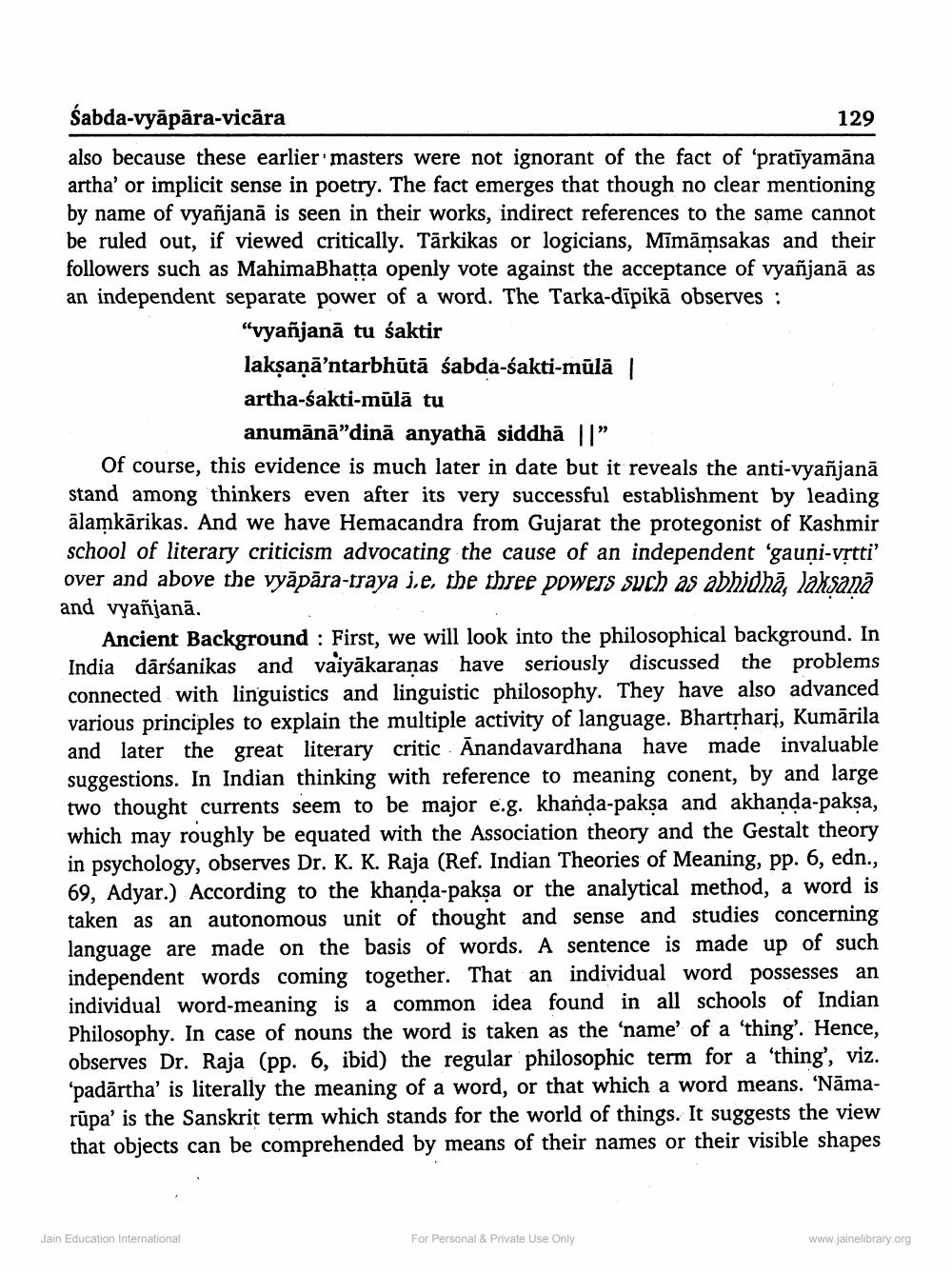________________
Sabda-vyāpāra-vicāra
also because these earlier masters were not ignorant of the fact of 'pratīyamāna artha' or implicit sense in poetry. The fact emerges that though no clear mentioning by name of vyañjanā is seen in their works, indirect references to the same cannot be ruled out, if viewed critically. Tārkikas or logicians, Mīmāmsakas and their followers such as MahimaBhatta openly vote against the acceptance of vyañjanā as an independent separate power of a word. The Tarka-dīpikā observes :
"vyañjanā tu śaktir
lakṣaṇā'ntarbhūtā śabda-śakti-mūlā |
artha-śakti-mūlā tu
anumānā❞dinā anyathā siddhā ||"
Of course, this evidence is much later in date but it reveals the anti-vyañjanā stand among thinkers even after its very successful establishment by leading ālamkarikas. And we have Hemacandra from Gujarat the protegonist of Kashmir school of literary criticism advocating the cause of an independent 'gauni-vṛtti' over and above the vyāpāra-traya i.e. the three powers such as abhidha, lakṣaṇā and vyañjanā.
Jain Education International
129
Ancient Background: First, we will look into the philosophical background. In India darśanikas and vaiyakaranas have seriously discussed the problems connected with linguistics and linguistic philosophy. They have also advanced various principles to explain the multiple activity of language. Bhartṛhari, Kumārila and later the great literary critic Anandavardhana have made invaluable suggestions. In Indian thinking with reference to meaning conent, by and large two thought currents seem to be major e.g. khanda-pakṣa and akhanda-paksa, which may roughly be equated with the Association theory and the Gestalt theory in psychology, observes Dr. K. K. Raja (Ref. Indian Theories of Meaning, pp. 6, edn., 69, Adyar.) According to the khanda-pakṣa or the analytical method, a word is taken as an autonomous unit of thought and sense and studies concerning language are made on the basis of words. A sentence is made up of such independent words coming together. That an individual word possesses an individual word-meaning is a common idea found in all schools of Indian Philosophy. In case of nouns the word is taken as the 'name' of a 'thing'. Hence, observes Dr. Raja (pp. 6, ibid) the regular philosophic term for a 'thing', viz. 'padartha' is literally the meaning of a word, or that which a word means. 'Namarūpa' is the Sanskrit term which stands for the world of things. It suggests the view that objects can be comprehended by means of their names or their visible shapes
For Personal & Private Use Only
www.jainelibrary.org




